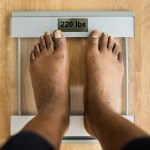
Agency revokes previous authorization for color additive to be used in food and ingested drugs
read on >

Agency revokes previous authorization for color additive to be used in food and ingested drugs
read on >

Grabbing a quick snack might soon come with a little extra clarity. The U.S. Food and Drug Administration (FDA) has proposed a new rule requiring bold, easy-to-read nutrition labels on the front of food and beverage packages. These labels, which would highlight content of sugar, salt, and saturated fat, aim to make it easier for shoppers to make healthier choices in the grocery aisle — helping to tackle the rising rates of obesity and conditions such as Type 2 diabetes, heart disease, and high blood pressure, a media report from The New York Times states. These chronic illnesses affect over 60% of American adults and contribute to an estimated $4.5 trillion in annual health care costs, according to the FDA. “Nearly everyone knows or cares for someone with a chronic disease that is due, in part, to the food we eat,” Dr. Robert Califf, the commissioner of the FDA, said in a statement released by the administration. “It is time we make it easier for consumers to glance, grab and go.” The black-and-white labels would appear on the front of products, unlike the current back-of-package Nutrition Facts panel, which lists dietary facts such as calorie counts, serving sizes, and ingredients. The new proposal is the result of three years of research by FDA scientists, who studied similar front-of-package labeling systems used in countries like Canada,… read on > read on >

Smokers are better able to quit if they’re offered financial incentives for their efforts. Overall, smokers had up to a 54% better chance at kicking the habit if their quit program offered them cash or vouchers as a reward, researchers found in a new evidence review published Jan. 13 in the Cochrane Database of Systematic Reviews. These incentives made even more of an impression on pregnant smokers, who were more than twice as likely to quit long-term if provided rewards, the review says. “Smoking is the leading preventable cause of ill health and early death worldwide, and quitting smoking is vitally important to help people live in good health for longer,” lead researcher Caitlin Notley, professor of addiction sciences at University of East Anglia’s Norwich Medical School, said in a news release. “We are now very confident that incentives help people, and pregnant people too, to quit smoking better than not offering incentives,” Notley added. Up to now, the evidence regarding financial incentives for quitting smoking hasn’t been solid, researchers noted. But an evaluation of 47 previous studies, including 14 newer papers, “found high-certainty evidence this time that indeed they help people who are pregnant quit smoking and stay quit,” senior researcher Jamie Hartmann-Boyce, assistant professor of health policy and promotion with the University of Massachusetts Amherst School of Public Health and Health Sciences, said… read on > read on >

Retirement is meant to be a person’s chance to take it easy and enjoy life. But for many, it’s a quick route to depression and boozing, researchers reported in a study published Jan. 10 in the journal Aging and Mental Health. Retirees are more likely to suffer from symptoms of depression than folks who are still working. What’s more, heavy drinking might be making their symptoms worse, researchers found. “Providing alternative coping mechanisms to heavy alcohol consumption for retirees is crucial,” researcher Christina Sellers, an associate professor of social work at Simmons University in Boston, said in a news release. “Addressing the combination of depressive symptoms and alcohol use among older adults is crucial too, especially considering their increased vulnerability to the negative effects of alcohol and underlying health conditions,” Sellers added. For the study, researchers analyzed data on more than 27,500 U.S. residents 50 and older taking part in a long-time survey of health and retirement, in which they’re questioned about their lives every two years over an average of 14 years. Participants self-reported their drinking habits, and answered questions related to their symptoms of depression. Results show that retirees suffer more depressive symptoms than people who are still on the job, researchers said. Retirees who reported binge drinking also tended to have more symptoms of depression than non-drinkers, researchers found. Binge drinking is… read on > read on >

The way obesity is diagnosed needs to become more sophisticated, an international commission has concluded. Using body-mass index (BMI) to tell who is overweight or obese is not reliable, and can result in misdiagnosis, the Commission on Clinical Obesity says in a new paper published today in The Lancet Diabetes & Endocrinology. “People with excess body fat do not always have a BMI that indicates they are living with obesity, meaning their health problems can go unnoticed,” commission member Dr. Robert Eckel, chair of atherosclerosis with the University of Colorado Anschutz Medical Campus said in a news release. “Additionally, some people have a high BMI and high body fat but maintain normal organ and body functions, with no signs or symptoms of ongoing illness,” Eckel added. Instead of BMI, the commission recommends that obesity be diagnosed through one of these methods: Using another measurement of body size (waist circumference, waist-to-hip ratio or waist-to-height ratio) along with BMI. Using two of those body size measurements without BMI. Making direct measurements of body fat using sophisticated scans. Assuming that people with very high BMI above 40 are clinically obese. “Relying on BMI alone to diagnose obesity is problematic as some people tend to store excess fat at the waist or in and around their organs, such as the liver, the heart or the muscles, and this is… read on > read on >

People with post-traumatic stress disorder (PTSD) are plagued by unwanted and distressing memories over which they have little to no control. Doctors now think they understand why PTSD patients and others aren’t able to keep troubling memories at bay. Sleep deprivation appears to interfere with people’s ability to restrict the retrieval of memories they’d rather suppress, according to a new study published recently in the journal Proceedings of the National Academy of Sciences. MRI scans show that well-rested people have more control over regions of the brain that manage memories, results show. “This is really important to our understanding of mental health issues as it is well documented that those who suffer with anxiety, depression or PTSD, also have difficulty with sleep,” senior researcher Scott Cairney, an associate professor of psychology with the University of York in England, said in a news release. For the study, researchers used MRI scans to observe the brain activity of 85 healthy adults. Half the participants got a good night’s sleep in a sleep lab, while the other half stayed awake all night. The research team then tested the participants’ ability to suppress memories. “We have previously shown that the brain’s ability to suppress such intrusive memories is contingent on obtaining restful sleep,” Cairney said. “Suppression is a very clever function of the brain as it weakens all of… read on > read on >

All women 65 and older should continue to be screened for osteoporosis, the nation’s leading preventive health panel says in an updated recommendation. The U.S. Preventive Services Task Force also recommends screening women younger than 65 who’ve gone through menopause and are at increased risk of a fracture from bone loss, according to the updated guidelines published in the Journal of the American Medical Association. “Too often, the first sign of osteoporosis is a broken bone, which can lead to serious health issues,” USPSTF member Dr. Esa Davis said in a statement from the group. “The good news is that for women 65 years or older, as well as younger women at increased risk, screening can detect osteoporosis early—before fractures happen—helping women maintain their health, independence, and quality of life,” added Davis, senior associate dean of population and community medicine at the University of Maryland School of Medicine. Osteoporosis happens as people grow older and their bones lose the ability to regrow and replenish themselves. As bones become thinner and less dense, the risk of a bone fracture grows worse. Bones most commonly broken due to osteoporosis include the hips, wrists and spine, according to the Cleveland Clinic. The updated guideline for women is consistent with earlier versions issued in 2018 and 2011. The USPSTF regularly reviews each of its screening guidelines, to make sure… read on > read on >

It takes a village to help a smoker quit. And a new study published recently in JAMA Internal Medicine shows that smokers had a nearly doubled success rate quitting when supported by an integrated approach that included medication and personal counseling. “Our study demonstrates that providing access to effective medications and trained tobacco cessation specialists offers the greatest chance at successfully quitting and, hopefully, avoiding the potential of lung cancer,” principal investigator Paul Cinciripini, executive director of the University of Texas MD Anderson Cancer Center’s Tobacco Research and Treatment Program, said in a news release from the college. Lung cancer is the top cancer killer in the U.S., accounting for one in five cancer-related deaths, researchers said in background notes. Tobacco use is responsible for 85% of lung cancer cases and contributes to nearly 30% of all cancer-related deaths, researchers added. The average smoker requires several attempts before they’re able to break their nicotine addiction and quit, researchers said. For this study, researchers recruited a group of 630 smokers between 2017 and 2021. The smokers were at least 50, and smoked an average 20 cigarettes a day. The smokers were randomly assigned to one of three groups, each containing 210 people. One group was provided nicotine replacement therapy or medication and access to phone-based support. The second received the same, only prescribed by a lung… read on > read on >

Eating disorders appear to be linked to differences in brain structure among teenagers. Young adults who develop eating disorders appear to have delayed brain maturation as teenagers, MRI scans show in a new study published Jan. 10 in the journal Nature Mental Health. In particular, reduced maturation of the cerebellum — a brain region that controls appetite — helped explain an increased risk of unhealthy dieting or purging by age 23, researchers said. “Our findings reveal how delayed brain maturation during adolescence links genetics, mental health challenges and disordered eating behaviors in young adulthood, emphasizing the critical role of brain development in shaping eating habits,” lead researcher Xinyang Yu, a doctoral student at the King’s College London Institute of Psychiatry, Psychology & Neuroscience, said in a news release from the university. For the study, researchers analyzed data from nearly 1,000 people in England, Ireland, France and Germany. The participants all underwent MRI scans at ages 14 and 23, provided samples for genetic analysis, and completed questionnaires related to their eating habits. By 23, about 42% of the participants had healthy eating behaviors, 33% tended to diet and purge, and 25% were binge eaters, researchers noted. Eating disorders were linked to emotional problems in their teenage years like anxiety and depression, researchers found, as well as behavioral problems like hyperactivity. Anxiety and depression also significantly increased… read on > read on >

Traffic, delays, disruptions due to storms or wildfires, and other surprises may be part of your next business or pleasure trip. In short: Travel is more stressful (and more expensive) than ever. But you don’t have to submit to the anxiety and upset, Dr. Asim Shah, professor and executive vice chair in the Menninger Department of Psychiatry and Behavioral Sciences at Baylor College of Medicine, said in a news release from Baylor College of Medicine. Disruptions are unavoidable, but your response is not. If you can remain calm, the chaotic travel twists won’t feel so stressful. We’ve rounded up a few expert-backed tips for coping with stress, anxiety, and the chaos that comes with modern travel. 1. Know your triggers What are your travel-related triggers? People who experience anxiety have different sensitivities. If you pinpoint those triggers ahead of time, you will likely have a smoother travel day. “Triggers might include the uncertainty of traffic, flight delays, being in public places or seeing friends and family for the holidays,” Shah explained in a news release from the school. The upside? “Based on your triggers, you can make a plan,” Shah advises. Does traveling alone worry you? Travel with a partner or buddy. Talk to your companion about your fears so they can help you alleviate stress. Use your stress management techniques, such as listening to… read on > read on >









